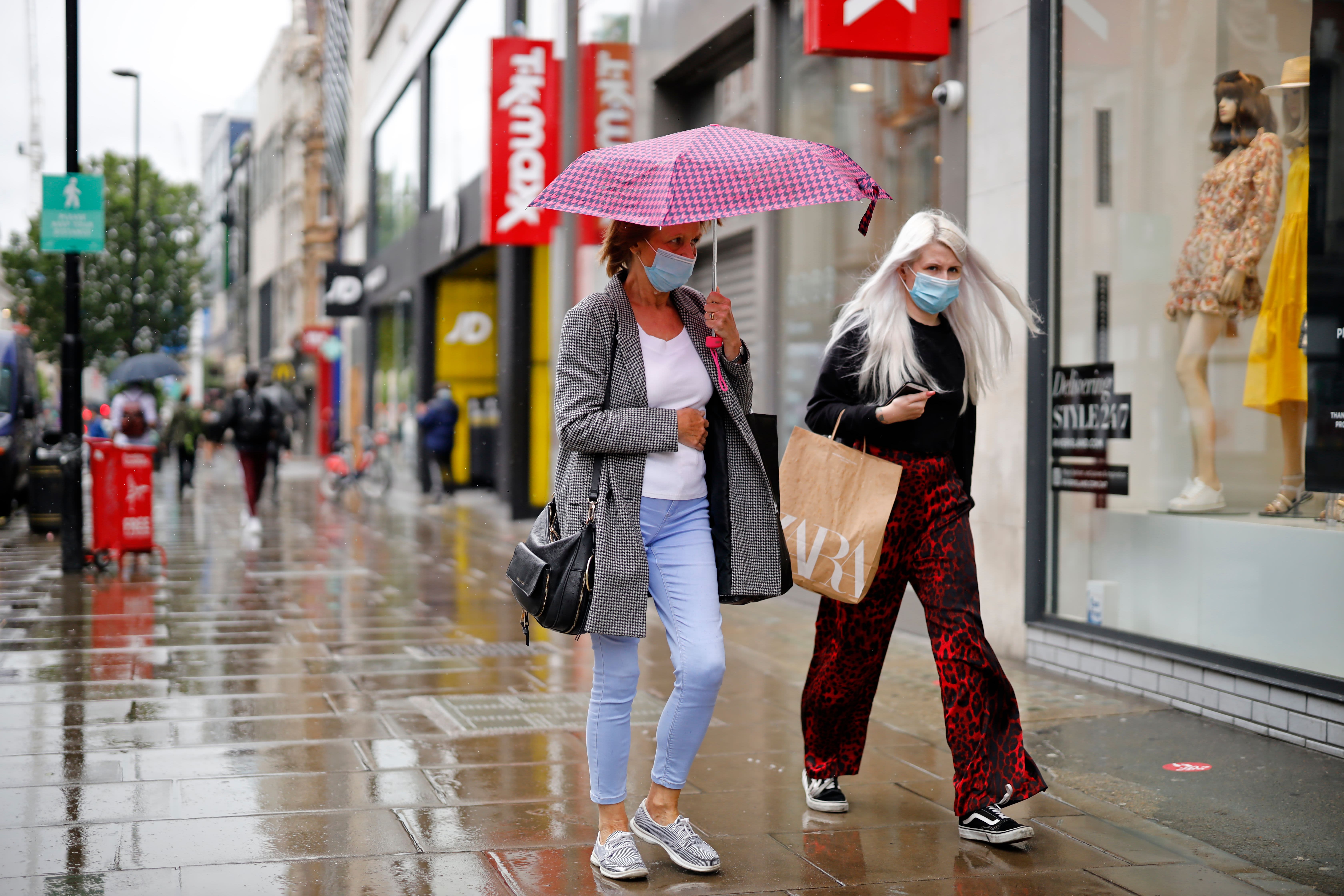
Shoppers wearing face masks walk through the rain on Oxford Street in London on June 18, 2020, as some non-essential retailers reopen from their coronaviruses shutdown.
Consumer prices in the United Kingdom rose to a 10-year high in November, as the Bank of England prepares to decide on monetary policy.
The Consumer Price Index rose by 5.1% in the 12 months to November, up from 4.2% in October and more than double the central bank's target.
The Bank of England had projected that inflation would hit 5% in the spring of 2022, and that the reading for November was 4.7%.
The U.K. inflation rose 0.7% in November from the previous month, above a poll for a 0.4% increase.
The core inflation rate, which excludes volatile energy, food, alcohol and tobacco prices, rose by 4% year-on-year against a forecast of 3.7%, and 0.5% month-on-month against a projection of a 0.3%.
The Monetary Policy Committee of the Bank of England will meet on Thursday to decide whether to tighten monetary policy, with inflation surging and the labor market remaining robust, but the rapid spread of the omicron Covid-19 variant has cast fresh uncertainty over the economic recovery in the short term.
In November, the Monetary Policy Committee voted 7-2 to hold interest rates at their historic low of 0.1%, but analysts are divided on whether the committee will hike rates on Thursday in light of the emergence of omicron.
Peak inflation may be a few months off for consumers. Richard Carter, head of fixed interest research at Quilter Cheviot, said that today's data only serves to increase the pressure on the Bank of England to raise interest rates tomorrow.
The Bank of England may decide that discretion is the better part of valour, and wait until next year, given the uncertainty surrounding the impact of the Omicron variant on the economy, and the risk that further restrictions may need to be introduced before long.
